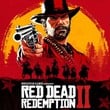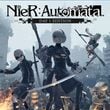Video Games' Stories Suck and it's Our Fault
Many of the best stories in video games would be considered average at best if they were the plots of movies or TV series. How can we love Indiana Jones' calques and corny fantasy tropes so much?
Older players can certainly still remember the not-so-distant times, when our hobby was largely disregarded as a waste of time of the worst sort, one meant for alienated weirdos uninterested in self-betterment. Fortunately, a lot has changed in this matter since, and the electronic entertainment exploded in popularity, becoming a pop culture artifact equal to movies or TV series. Still, the players, who remember the “Dark Ages” of gaming, still face minor complexes.
These are mainly manifested in our constant efforts to prove to everyone around that our hobby is not inferior to film or literature. We emphasize the power of immersion, which renders games much more compelling than the passive consumption of movies or books; we sing praises of the artistic value of indie games, time and time again coming back to the question “Are video games art?”, just to assure everyone – and perhaps even more so, ourselves – that this indeed is the case.
The issue is that we’re oftentimes so fixated on proving that games are equal to other branches of pop culture that we tend to overlook the writing on the wall. And it goes like this: “Stories in video games, even in those recognized as crowning achievements of storytelling, are rarely anything but average, B-class intrigues straight from pulp magazines.

WARNING: This article reveals the story details of The Witcher 3: The Wild Hunt and the Metal Gear Solid series. Spoilers are additionally marked in the text.
Be SAD! And now be HAPPY!
One of the biggest releases of 2018 was Detroit: Become Human, the new narrative adventure from Quantic Dream, whose back-catalog includes other story-intensive games such as Heavy Rain and Fahrenheit. And while the game did expose players to the issue of artificial consciousness of androids, the delivery was nowhere near as ambitious, comprehensive or inquisitive as in Do Androids Dream of Electric Sheep, Ex Machina or Westworld.
The elusive answer to the question of whether a machine can have feelings was terribly simplified, with the game practically yelling at you “YES, GODDAMN, THEY DO, NOW SHOW SOME COMPASSION.” The one-dimensional good guys faced a bunch of equally banal bad guys over a series of corny tropes we’ve all seen a million times.

If Detroit was a movie or a TV series and offered exactly the same story, it would have been classified as a B-class popcorn flick (if anyone even agreed to produce it) and promptly forgotten, same as 2004’s I, Robot was; same as Ghost in the Shell, which we’ll soon forget (here’s hoping – fans of the franchise might have a much harder time erasing that one from memory).
And still, the game was largely considered one of the best releases of last year, with the storyline being its mainstay. Hackneyed clichés and flat characters aren’t apparently a huge problem in a game so strongly committed to telling a story – a few touchy-feely cut-scenes and a multitude of possible endings is enough to become a milestone of electronic entertainment, it turns out.
If it was a movie, It’d probably be a cable-TV cringe-fest. However, it definitely is a very engaging experience.
Someone on the Internet, giving Detroit a 9/10
Great story... for a game
Become Human and other titles from Quantic Dream, with their stories that have more holes than Swiss cheese, are the most upfront examples of what I’m getting at here, but there’s more. You could mention the Assassin’s Creed series, whose stories – focused on cosmic mysteries and conspiracies – won the hearts of hundreds of thousands of players, even though their quality could barely hold a candle to Dan Brown’s dubious literary achievements. Or the Uncharted series, where a handful of well-written, charismatic characters and good dialogues were absolutely enough to compensate for the simplistic, new-adventure-cinema style stories. You could say the same thing about GTA V, where the amazing characters partook in stories that rarely held water.

These are, however, games addressed to the general public – which can explain their simplistic nature, as well as the widespread acclaim they always seem to reap. Consequently, the consumers of these titles are much less aware of story and character clichés in general, which makes them more impressible; even the most cliché trope might seem novel to them. The thing is that if you stack these stories and characters against the biggest literary or cinematic works, they seem nearly infantile.
WARNING! The Witcher 3 spoilers ahead
Let’s take as an example one of the best RPGs of the 2010s, a game often praised for its story – The Witcher 3. Yeah, grab your pitchforks, folks, we’re about to diss The Witcher. A game, that has a great story... for a video game. Give it a longer though and you should agree that when compared with the best fantasy books, the story of Geralt running around looking for Ciri, then facing the Hunt, losing a battle and a friend, regrouping and achieving ultimate victory – saving the world somewhere along the way – does not really stand out. The game of course scores minor points for subplots, with the Bloody Baron quest at the forefront, but let’s admit it – the awesome here boiled down to having an extremely morally ambiguous character and a very logical plot that doesn’t end happily. Rare in games, standard in books.
ANOTHER OPINION

The Bloody Baron quest seems to me the best argument in the discussion. This side storyline is usually considered one of the greatest achievements in video game storytelling – you really can’t take issue with anything particular; it’s a solid, well-crafted story.
I am, however, under the impression, that if that same story was featured in one of the books of the saga, we would have barely remembered it today – simply because there were a few stories in there that were so much better. The secret is probably the decisions you can make in the game, which then impact the credible characters.
Marcin Strzyzewski
End of spoilers

How many classic RPGs – games usually associated with ambitious stories – are indeed something more than a collection of themes straight from formulaic fantasy and sci-fi potboilers? Surely not Baldur’s Gate, which is a typical story of The Chosen One Having Family Issues. Nor the first Fallout, where (another) chosen one stops the super-evil supervillain from creating an army of supervillains to conquer the world. Nor the Mass Effect trilogy, which, apart from the collection of well-designed characters and interesting lore, is just another story of Imminent Doom that forces people (and other races) to unite under the leadership of some badass, or other.
WARNING! Minor spoilers regarding Metal Gear Solid

Even the Metal Gear Solid series – which I adore for its story – raises complex issues of the government abusing soldiers and smuggles anti-nuclear allusions as often as it solves plot knots with deus ex machinas such as the nanobots that clear up all the perplexing questions of MGS4: Guns of the Patriots and Metal Gear Rising, or the parasites from The Phantom Pain.
End of spoilers
I have a strange impression that all the problems we wave off because it's a game – so that we can enjoy the brilliance of other aspects of Kojima’s scenarios – would disqualify MGS if it was a series of TV episodes, books or films. The fact is the stories didn’t even cut ice in comic books – the relatively faithful adaptations of the first two games did not withstand comparison with other strips, and the series published in 2004 and 2006 through 2007 were remembered only as rarities for the biggest fans.

Adaptations, in general, are a good argument supporting my assumption. Given the number of comics, books, and movies based on gaming franchises, you could reasonably expect a few titles would be acknowledged as standalone products, rather than oddities for the fanbase (in the best case, because they oftentimes fail even at that). However, since they are so few and so far between, it’s safe to assume that it’s not the audiences that don’t get it, but rather the producers.
The most profitable film adaptation of a video game in history was Lara Croft: Tomb Raider with Angelina Jolie. The film earned $131 million. Average rating – 33/100 (according to Metacritic) …
Of course, there are also exceptions – games with stories that could rival the best (mainstream, at least) products of literature and cinematography. The nihilistic NieR: Automata fully utilizes the edge video games have over the books in terms if immersion – but even if you took away the interactive element, the story would still stand on its own, and would still be an amazing cultural product, challenging your life outlook. Same as the story in Planetscape: Torment, which – with its core question of “What can alter the nature of men?” and other philosophical inquiries – could easily become a decent, standalone novel; even more so today, perhaps, considering the game has gotten visibly older. These are, however, special cases among the sea of average stories that are only considered good when compared with the rest, but otherwise don’t stand a chance with, say, a Cohen brothers’ movie.
Why so shallow?
It would be easy to blame ourselves for the shallowness of video game stories – having rather modest expectations in this respect, we’ve allowed the developers to neglect the stories, taught them that they don’t need to strive for genuinely original ideas and can comfortably resort to clichés that are painfully formulaic, albeit well exercised, and still have the customers in awe. And there’s undoubtedly some truth in that. But the fault is not entirely ours – after all, it would be nice if the developers exhibited some more ambition in fully exploring the power that this great medium offers in terms of creating unique stories.

But the problem is more complicated, and mainly stems from the huge differences that occur between the development of games and the creation of other artifacts of culture. When writing a book or directing a movie, it all starts with a general outline of the plot, which is the main impulse for further work – the transition of the blueprint into the final product, the creation of screenplay, choosing the cast and finally the proper production on the movie set. Even in the case of blockbusters, in which the story is extremely rudimentary, such as Michael Bay’s Transformers, the conceptualization of the movie starts with the story; only then comes the army of explosion specialists.
At the same time, in the case of video games, the story is rarely the cornerstone of the project, the framework that determines the final shape of the product. The entry points for creating a video game lie elsewhere: obtaining a license, coming up with a novel mechanic or artistic style, combining genres, inventing a unique technology, exploiting the current trends in the industry by the marketing division (in the worst case). These are the elements that most often spur the development. The scenario is created later and it has to fit all the elements that were already created.

ACCORDING TO “AN EXPERT”
I have published two novels and worked on story elements in tabletop and video games (including This War of Mine: Tales from the Ruined City, We. The Revolution). From my experience, I can totally agree that there’s a huge gap between writing a book and writing the story for a game. First and foremost, you don’t have to take into account other departments, who’s customary answer is “can’t be done.” Then, rewriting a book and introducing changes in its plot is relatively easy and doesn’t implicate such huge complications. On the other hand, if you change your mind about the story in a video game a year into the production, you’re likely binning hundreds of hours’ worth of designers’ work on the graphics, animations, and sound.
Another issue is the nonlinearity, adored by the players. Creating a game that’s truly nonlinear, where you can make all kinds of decisions, quickly leads to a gigantic increase in the number of letters that need to be written, and the threads, whose consistency needs to be carefully watched over.
Marcin Strzyzewski
The very necessity to create within the established framework is a considerable hurdle for the writers, whose work is further curbed by the limitations imposed by the gameplay rules or engine restrictions. Action games will usually tell the story of a badass that’s incredibly adept at gunplay (except Far Cry 3, which told the story of a wimp that was incredibly adept at gunplay).
Character development mechanics also require that the protagonist isn’t particularly powerful at the beginning (but also not a wussy), and becomes more formidable as the story goes forward. Having a bipolar morality system also imposes a binary system of decision-making.
An open world with a myriad of side quests that can be completed in any order makes it difficult to create a series of story missions with a logical cause-and-effect sequence. If the engine doesn’t let you generate more than thirty characters at any given time, it effectively nullifies any attempt at creating a grand final battle. There are dozens, hundreds, even thousands of such small constrictions. The more complex the game is, the harder it is to bend the gameplay towards the story.

Another problem, which limits writers, is the so-called ludonarrative dissonance: an instance, where the plot and the gameplay are not consistent. The charming and agreeable lad that Nathan Drake is in the cutscenes turns into a blood-thirsty, frenzied murderer in the game proper; Lara Croft is first aghast after killing a man in self-defense, and a few minutes later literally mows down dudes by the dozens in a variety of ways that make Agent 47 go “Hmm...”
First, you get a cutscene, where characters discuss the incredible urgency of the problem at hand, and then you easily go about completing some goofy side quests, paying no heed to the fact that your friend was kidnapped or your planet is being decimated. In the cult Japanese RPG, you literally spend a dozen hours watching your comrades die and joyfully resurrect them with some ridiculously cheap concoction available in every store, today, just to finally encounter a cut-scene, where the worst comes to worst, the death is suddenly deadlier than it used to be, and the magical Phoenix Dawn is all at once useless.
I know why Uncharted 4‘s developers made the game the way they did. I just don’t agree. I wouldn’t do the same thing. When people say these games have good stories, I think they’re only comparing them to other games. If you compare them to good movies or good novels, the stories are terrible. Or at best, they’re like a story from an episodic TV show where there’s some villain and someone trying to defeat the villain. It’s very simplistic.
Even all these games that win awards. Where games are in terms of storytelling . . . it’s not Moby Dick, it’s not Finnegan’s Wake, it’s not Pride and Prejudice. It’s Airwolf or Knight Rider. Uncharted is probably on the level of some of the better TV shows, but it’s not good. It doesn’t do justice to the millennia of storytelling craft, and that’s not me trying to say bad things about Uncharted, it’s about all story-based games. I don’t feel like they’re there in terms of that craft of storytelling. And part of the reason, but only part of the reason is what some have taken to calling ludonarrative dissonance.
Jonathan Blow, the creator of Braid and The Witness, in an interview published on Time.com back in 2016.
Par for the course
Games can be extremely engaging. They can be nonlinear and are able to play with the form to a degree unheard of in other media. It’s a great shame that this potential is fully realized so rarely, even in cases of games that are said to have great stories.
Unfortunately, I seriously doubt things should change anytime soon. The entire model of developing games would have to shift towards one, where the story governs all the other elements, such as the genre. And for the devs to push, the players would have to pull – we would have to change our expectations and cut the complacency, stop glorifying B-class stories only because they can nicely strike simple emotional chords.

And we’re not huge fans of change, eager to see new quality. We’re happy to see our medium finally caught up with average movies and books. You can notice this by looking at the opinions reaped by Red Dead Redemption 2 – a game that gave up the mainstream, frantic pace of gameplay and character development, in exchange offering a calmer, more toned narrative. Many players, accustomed to an incessant blaze of explosions, betrayals, and dramatic plot twists occurring every five minutes, were unable to fully digest the story that proposed a more prosaic perspective. It still was an action game with plenty of shootouts, chases, and other attractions, but all it took was a minor reduction of the pace to generate severe criticism and resistance. And this sent a clear signal to those developers, who were considering telling a more ambitious story – it’s not worth it, because we prefer the B class.
The above text is not an impartial journalistic article, but a column presenting the opinion and point of view of its author.





